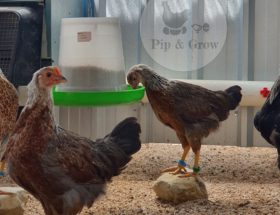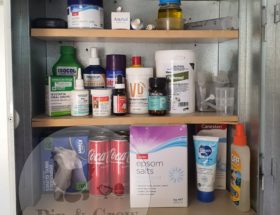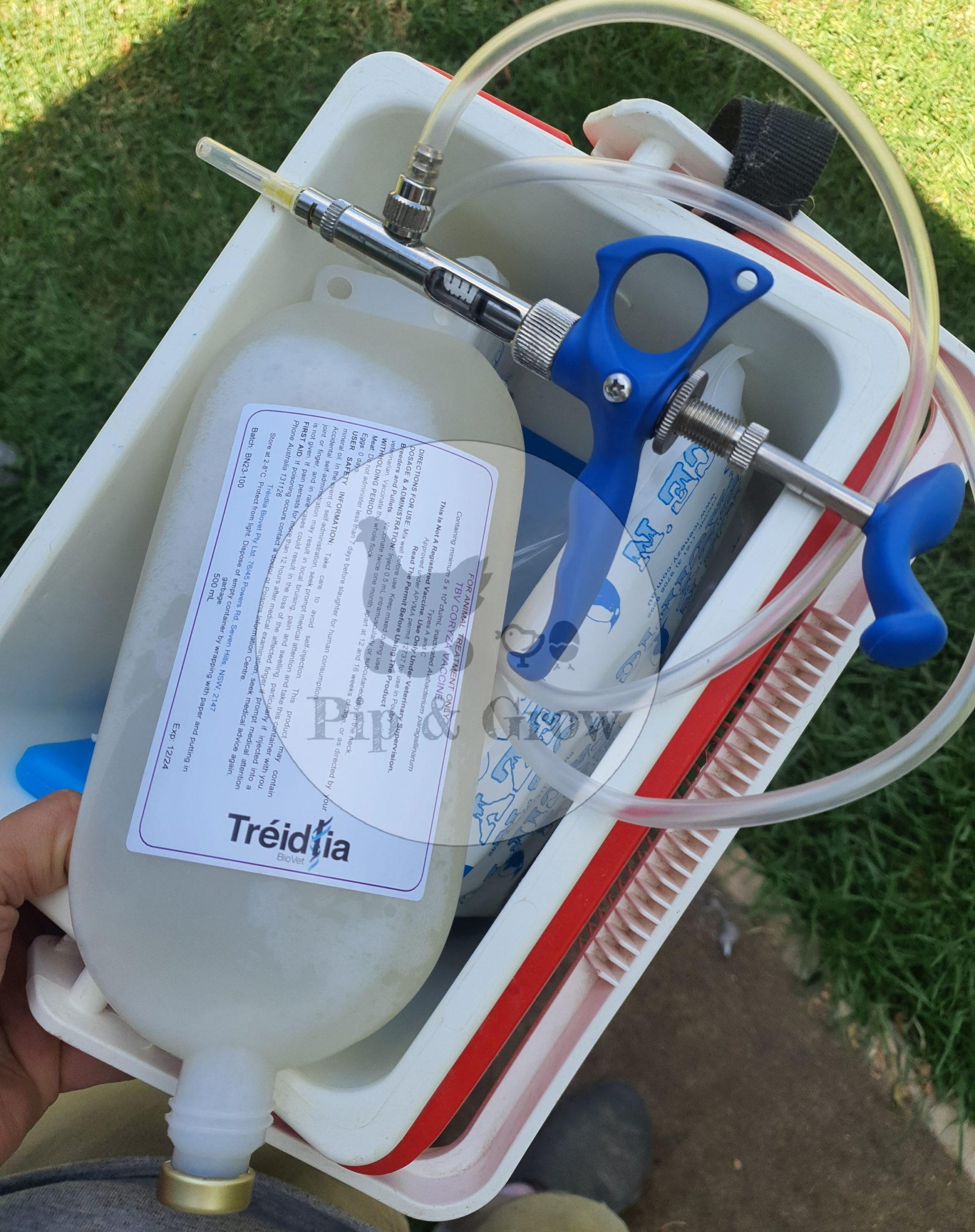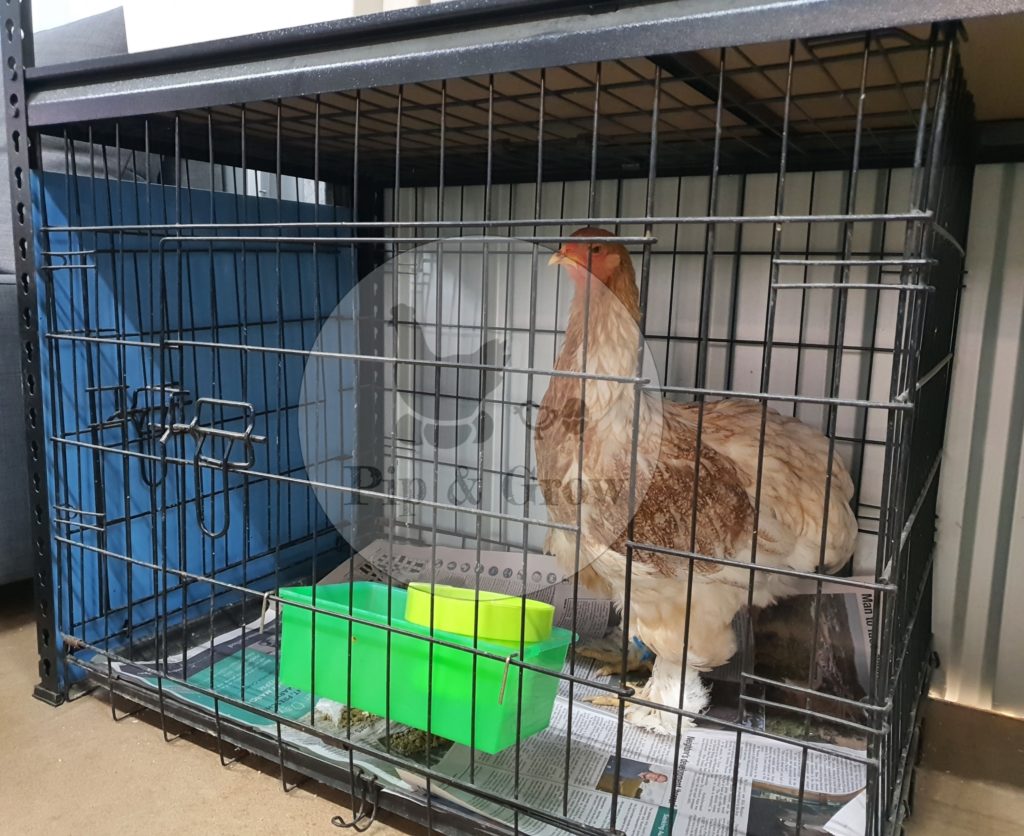
Isolate
Separate the unwell chicken from the rest of the flock. If the chicken is injured, isolation will create a calm environment for recovery, protecting it from potential pecking by others and allowing it to recuperate from shock. If the illness is caused by a contagious disease, isolation will help prevent its further spread to other chickens.
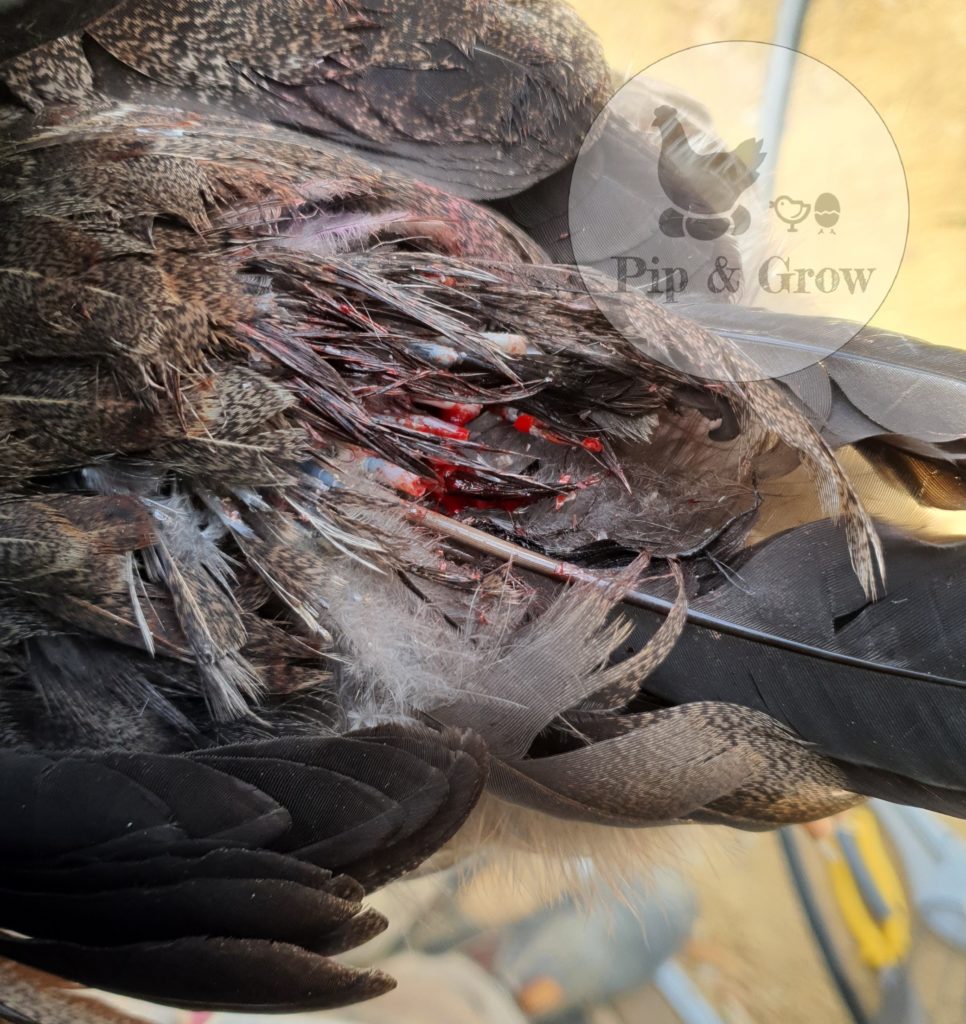
Examine the Bird
- Swelling or Sores: Look for any noticeable swelling or visible sores on the bird’s body, legs, or feet.
- Scabs or Blood: Check for scabs, wounds, or signs of bleeding, particularly around the head, wings, or vent area.
- Discharge from Eyes or Nostrils: Examine the bird’s eyes and nostrils for any discharge, which could indicate respiratory or eye infections.
- Vent Area: Inspect the vent area to assess cleanliness. A messy vent might indicate diarrhea, digestive issues, or egg-related problems.
- Recent Worming: Verify the latest worming date and product used to prevent parasitic infections.
- External Parasites: Check for external parasites such as lice, ticks, or mites on the bird and in their housing.
- Droppings: Observe the bird’s droppings for abnormalities like diarrhea (watery or bloody), which can signal digestive issues or infections. Whitish or clear discharge can indicate egg peritonitis.
- Body Condition: Assess the bird’s overall body condition. A healthy bird should have a good weight with a well-rounded body. A skinny bird might indicate illness or inadequate nutrition.
- Feel the Crop: Gently feel the bird’s crop located on the front of the neck. It should not feel empty, excessively squishy, or hard. An empty crop may indicate lack of feeding, while a hard or impacted crop could signal digestive issues.
- Smell the Breath: Get close to the bird’s beak and sniff to check for any sour or unpleasant odor. Foul-smelling breath can be a sign of respiratory or digestive problems.
- Behavioral Changes: Observe behavior such as lethargy, lack of appetite, or changes in breathing patterns, as these can be signs of underlying health issues.
Identifying the issue & provide a right treatment
It’s important to consult with a specialized avian or poultry veterinarian for accurate diagnosis and treatment of bird health issues. If veterinary care is not immediately accessible, seeking advice from experienced poultry keepers can be helpful.
- Reach out to the breeder from whom you obtained the birds. They may have valuable insights or be familiar with common health issues in their breed.
- Join reputable poultry groups on social media platforms like Facebook. These groups often have knowledgeable members who can provide guidance based on their experiences. When seeking advice online, provide detailed information about the bird’s symptoms, environment, and any recent changes. This can help others provide more informed responses.
- Google or online search can be useful, however be cautious when seeking advice from the general public, as each individual may have different experiences and perspectives. Some poultry diseases, especially respiratory ones, can present similar symptoms, making accurate diagnosis challenging. Gather advice from several experienced sources to compare recommendations and look for common themes.

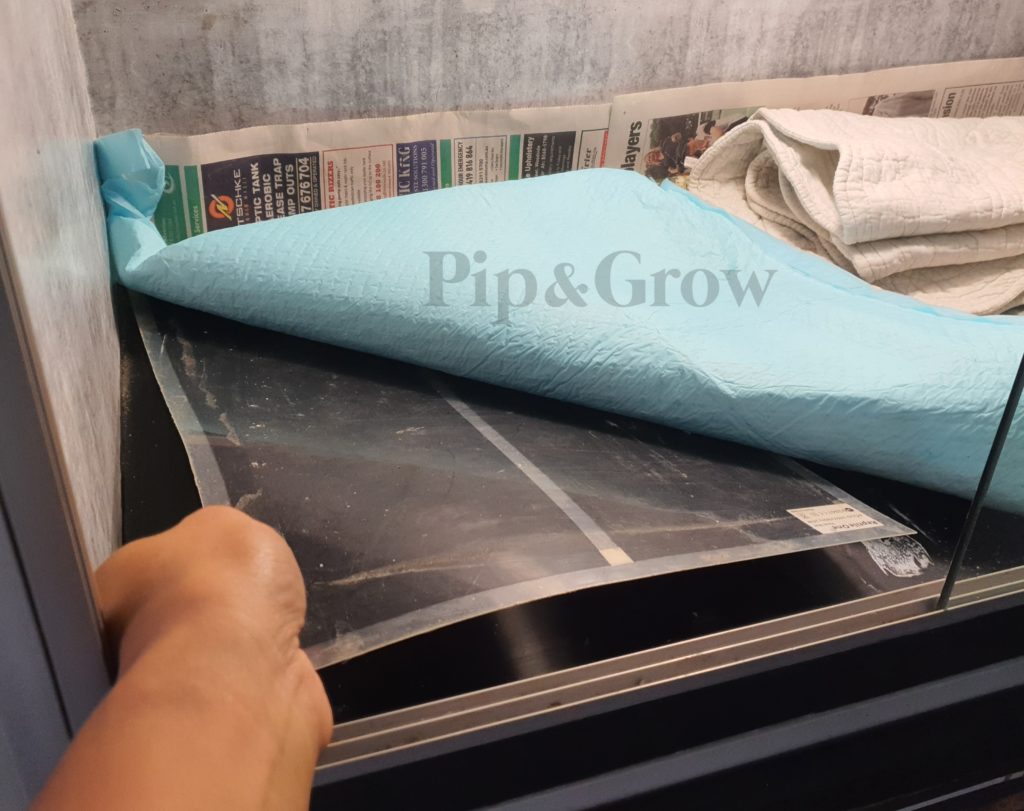
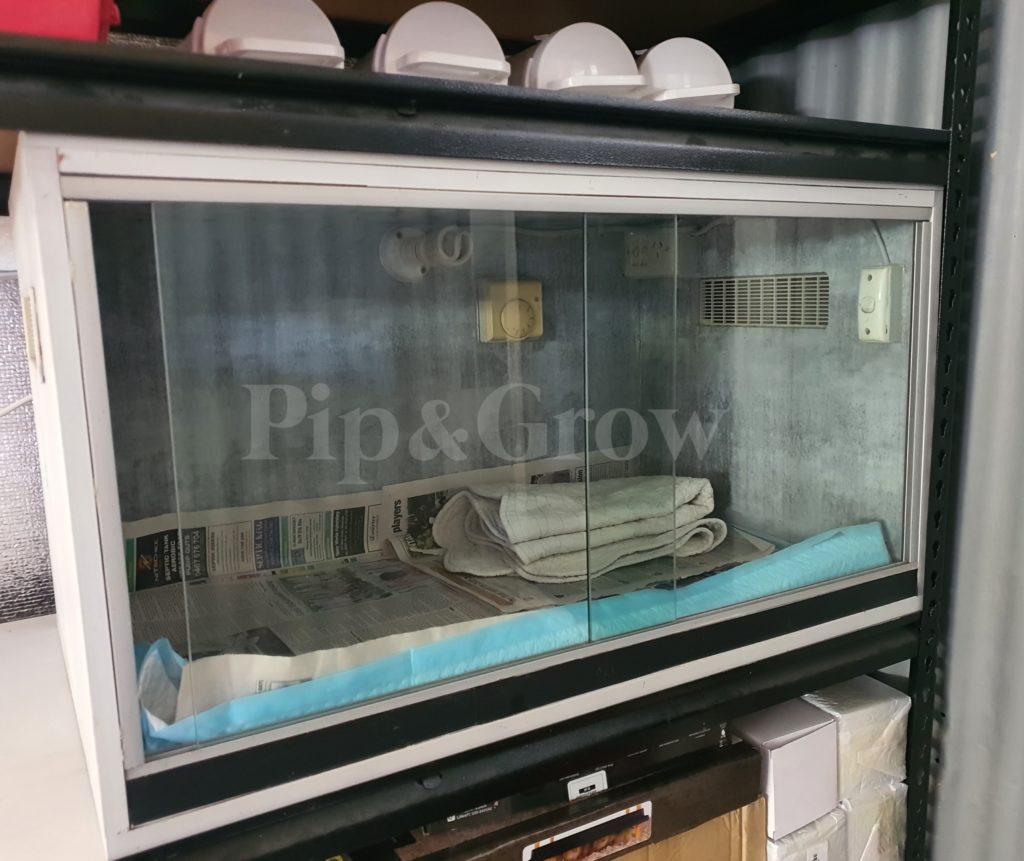
Provide Supportive Care – Warmth, Food & Water
Ensure the sick chicken has access to fresh water and appropriate feed at all times. Keep the chicken in a quiet, warm, and dry environment to help them rest and recover. When chickens are sick, their bodies may be weakened, and they may have reduced energy reserves. Maintaining a warm environment helps conserve their energy by reducing the need to generate heat to stay warm.
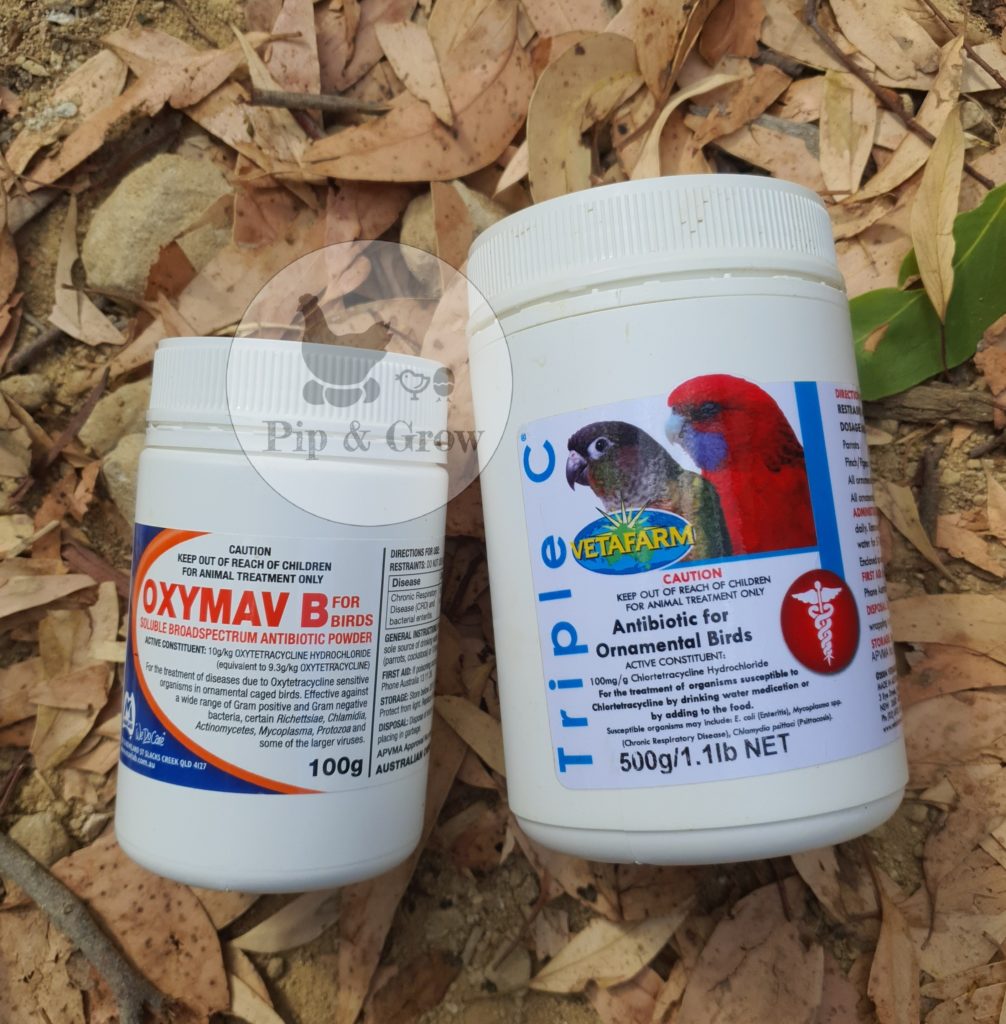
When administering medication to birds, it’s essential to carefully read the product label and strictly follow dosage instructions and the recommended administration period. Certain medications may have specific dietary requirements. For example, some antibiotics are ineffective if the diet contains excessive calcium, and certain combinations of medications like Coccidiosis treatment and vitamin B supplements can negate each other’s effects, rendering the medication ineffective.
Please remember that while seeking advice from others can be helpful, it’s essential to approach information critically and prioritize the well-being of your birds. When in doubt, consulting with a specialized avian or poultry veterinarian remains the best course of action for diagnosing and treating bird health issues effectively.
Related Post
Antibiotics
